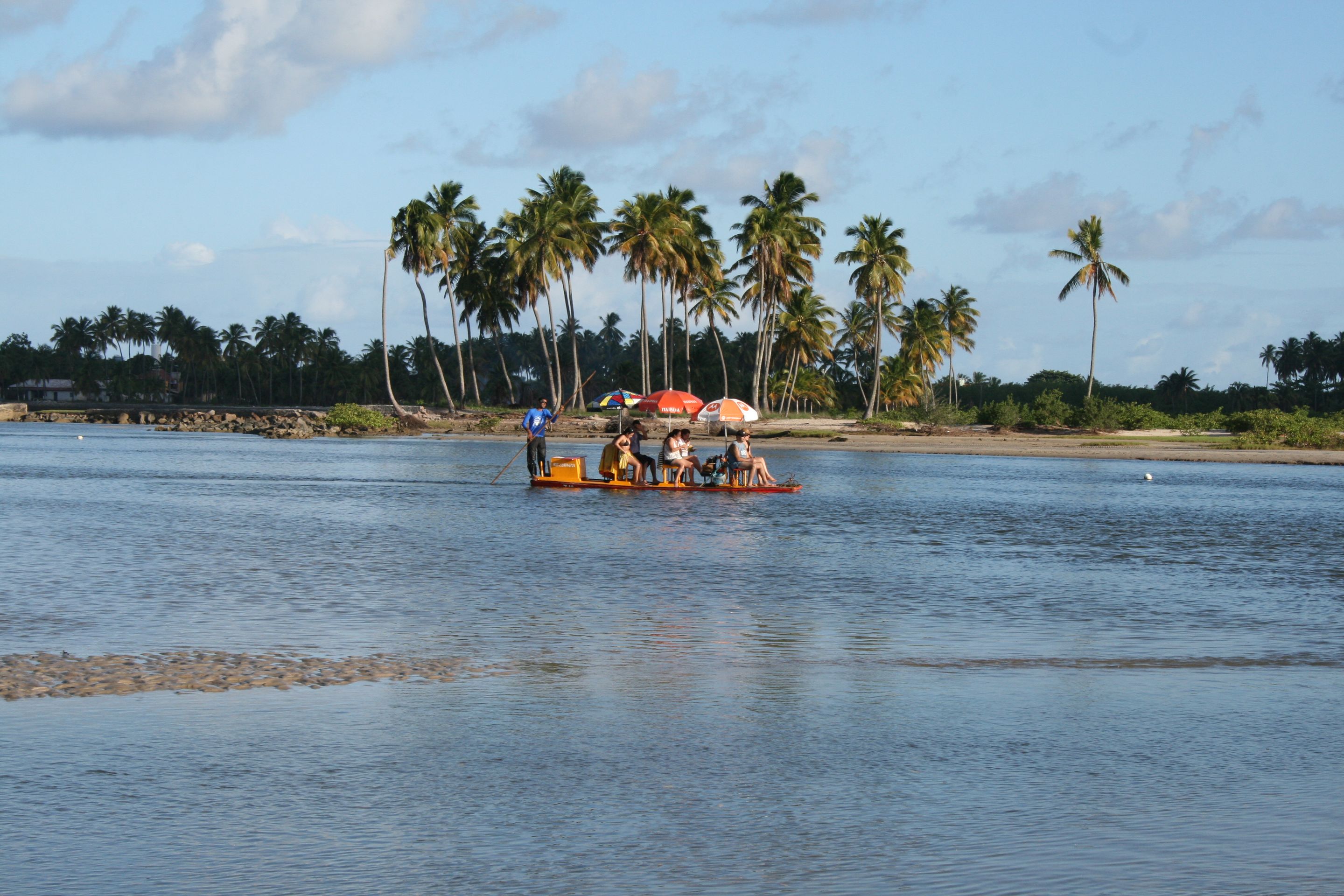We are visiting the Kilauea Volcano
게시됨: 17.10.2024
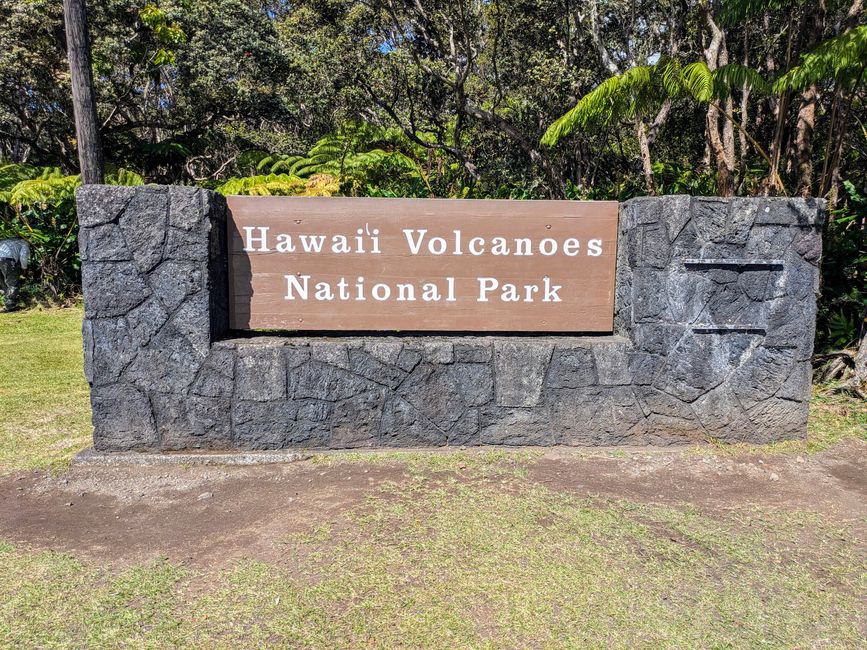
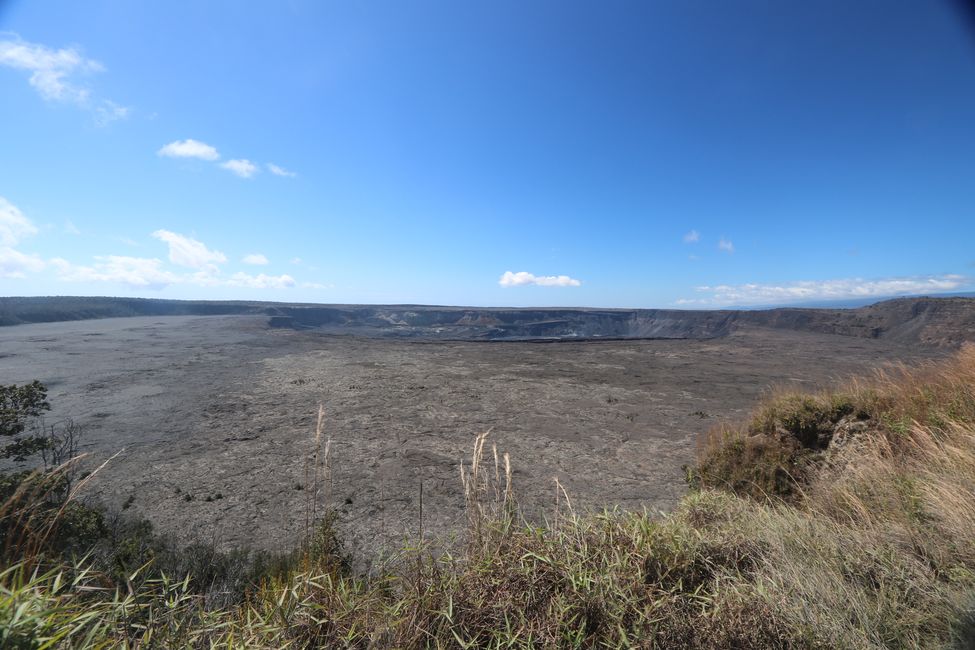
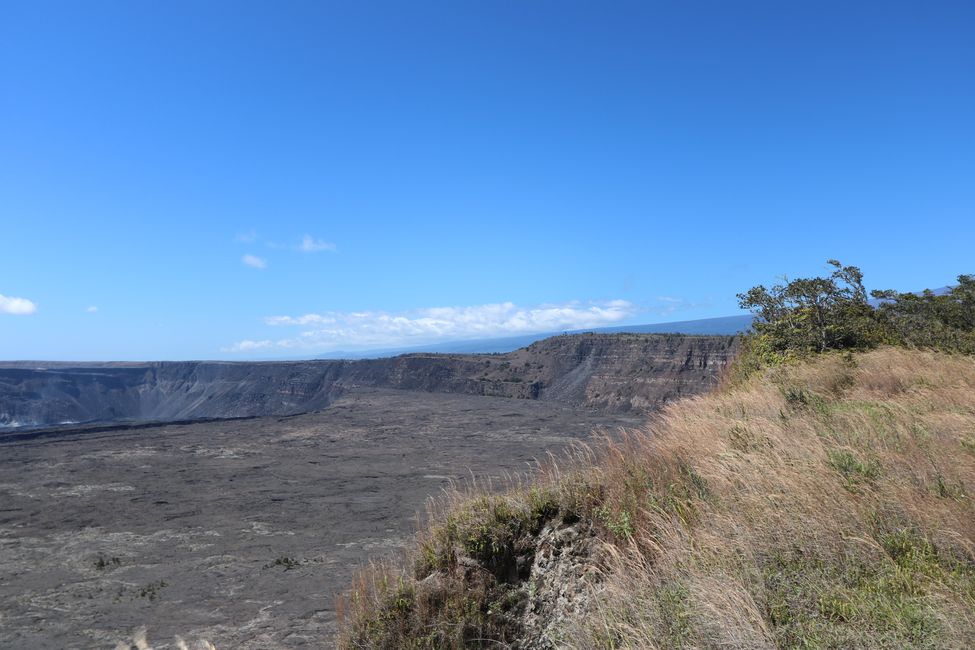
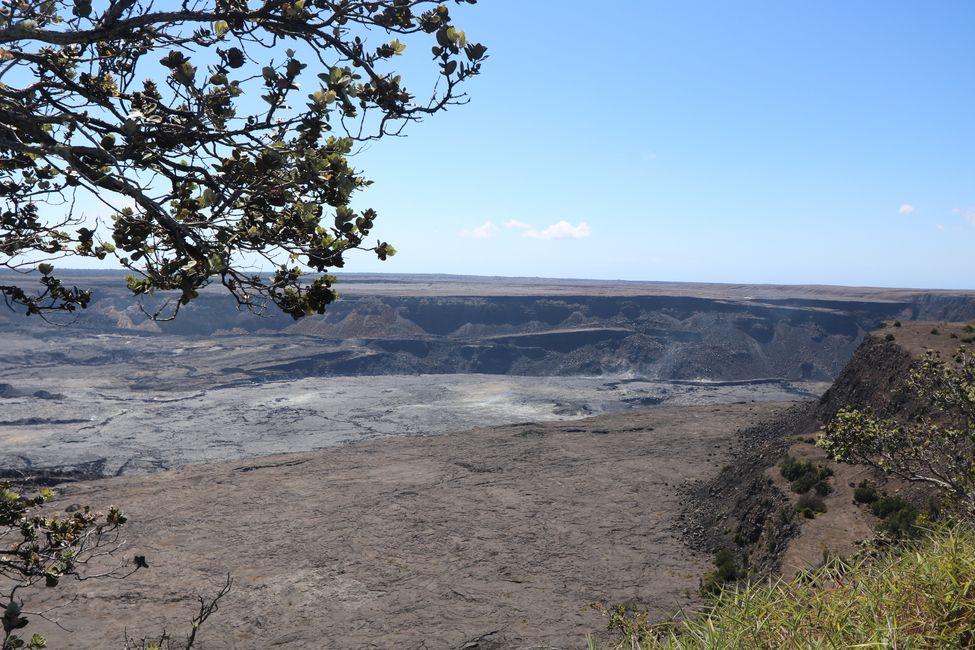
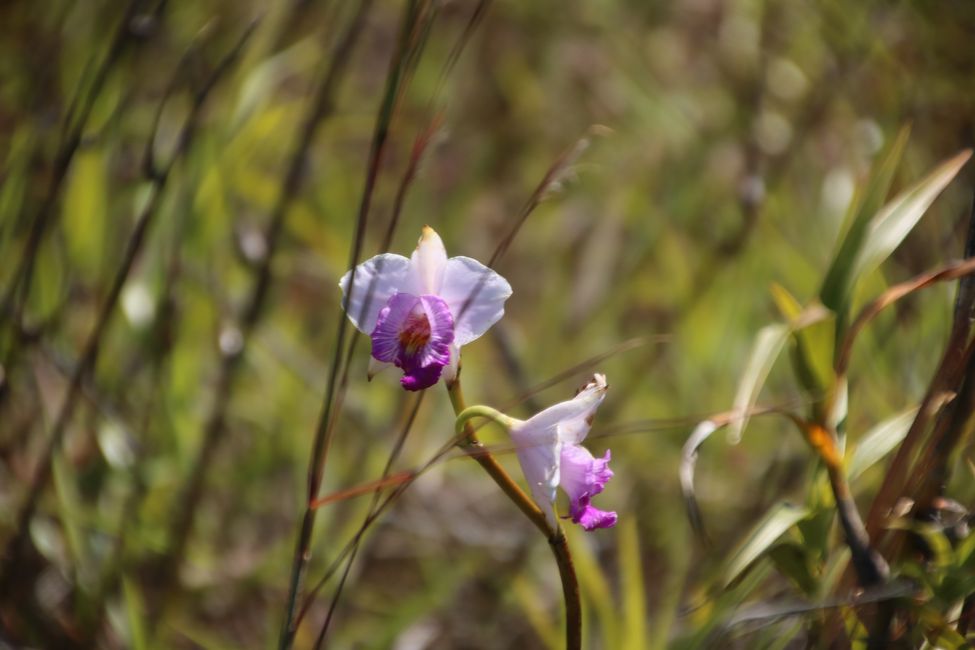
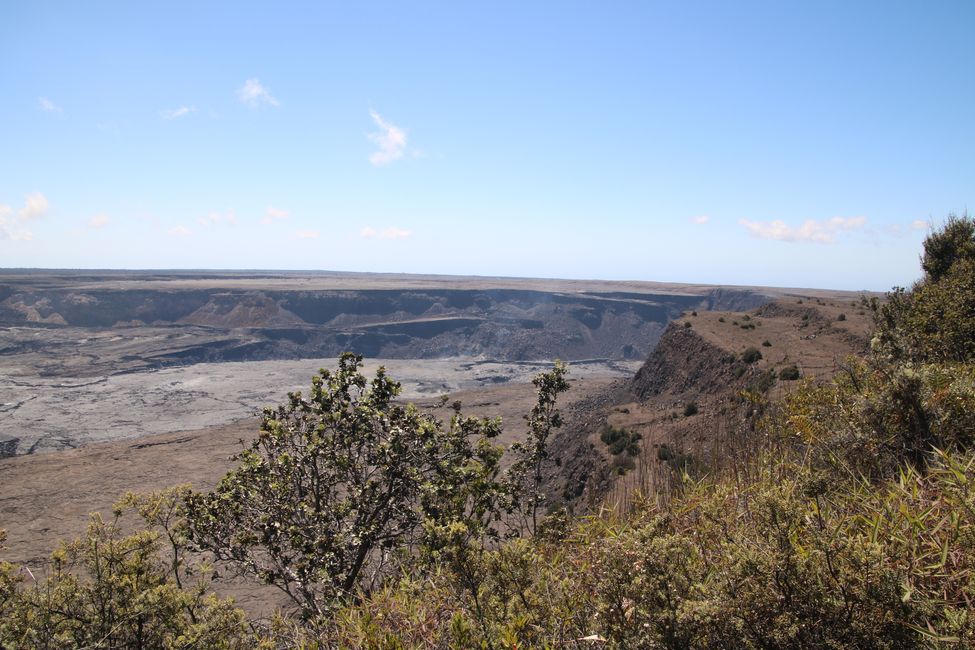
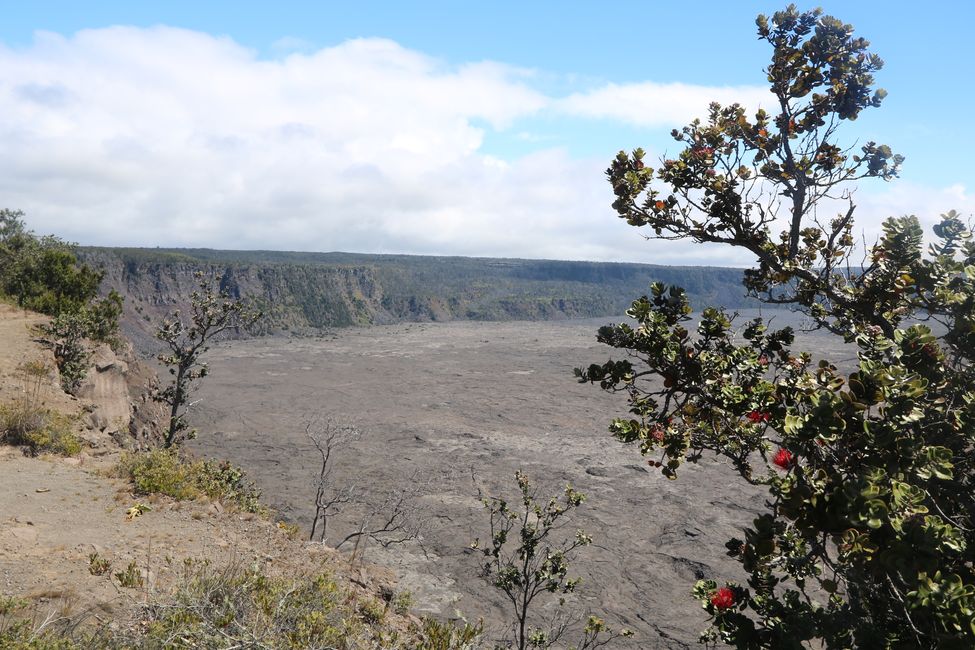
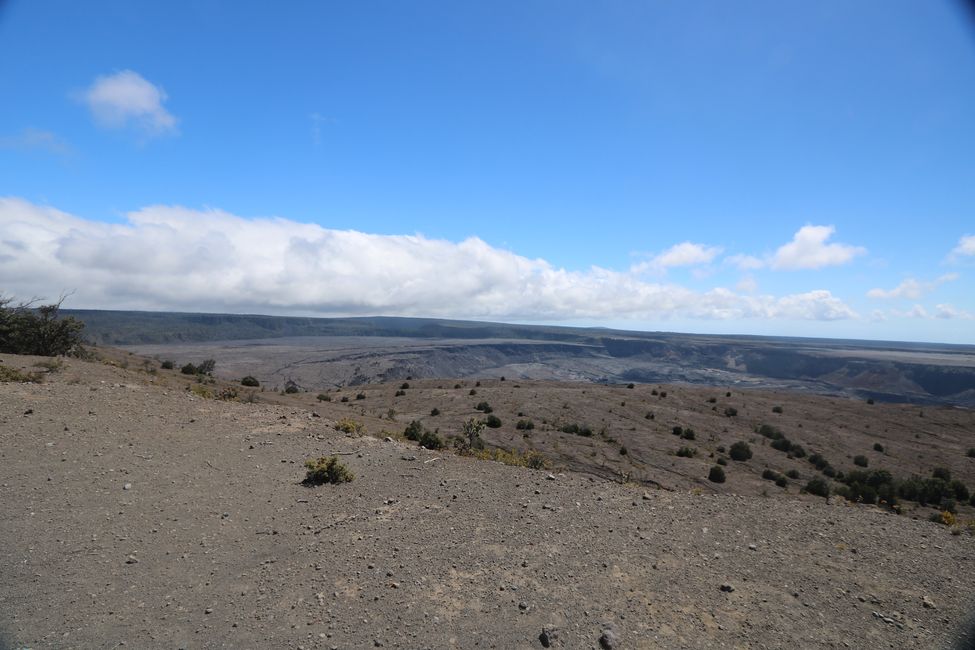
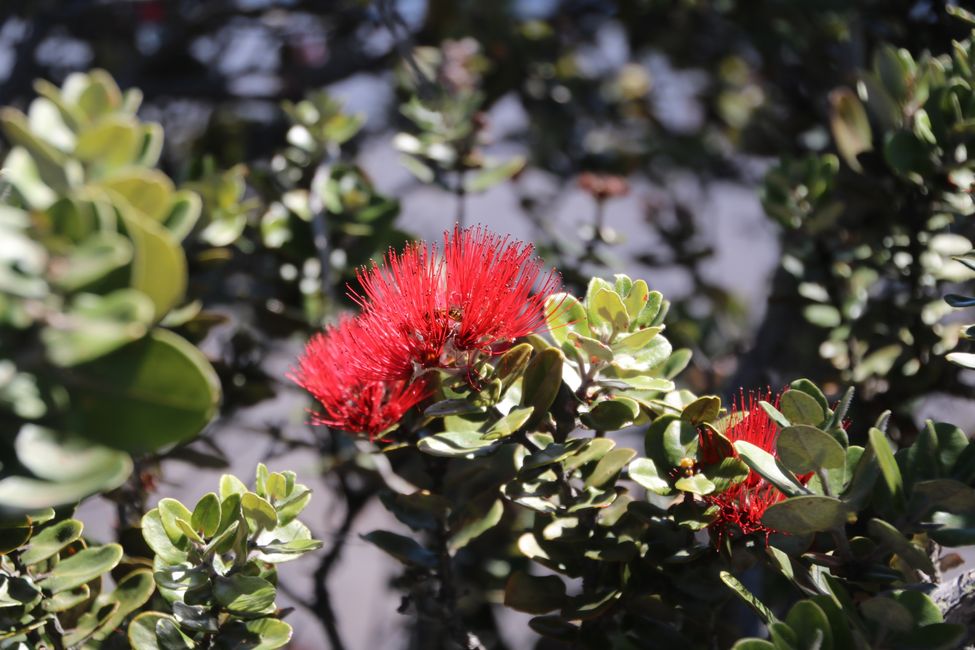
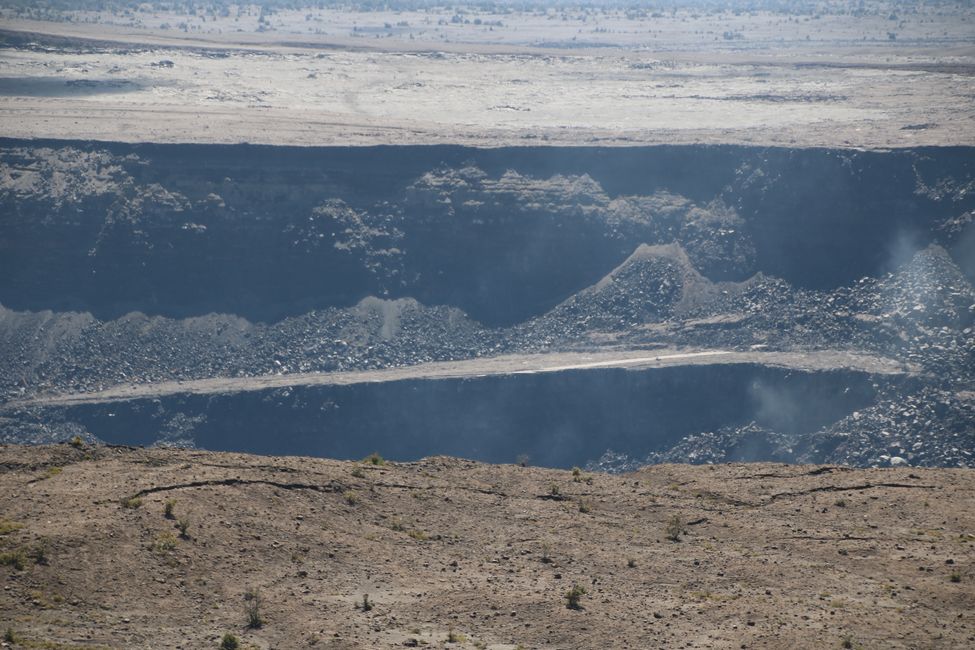
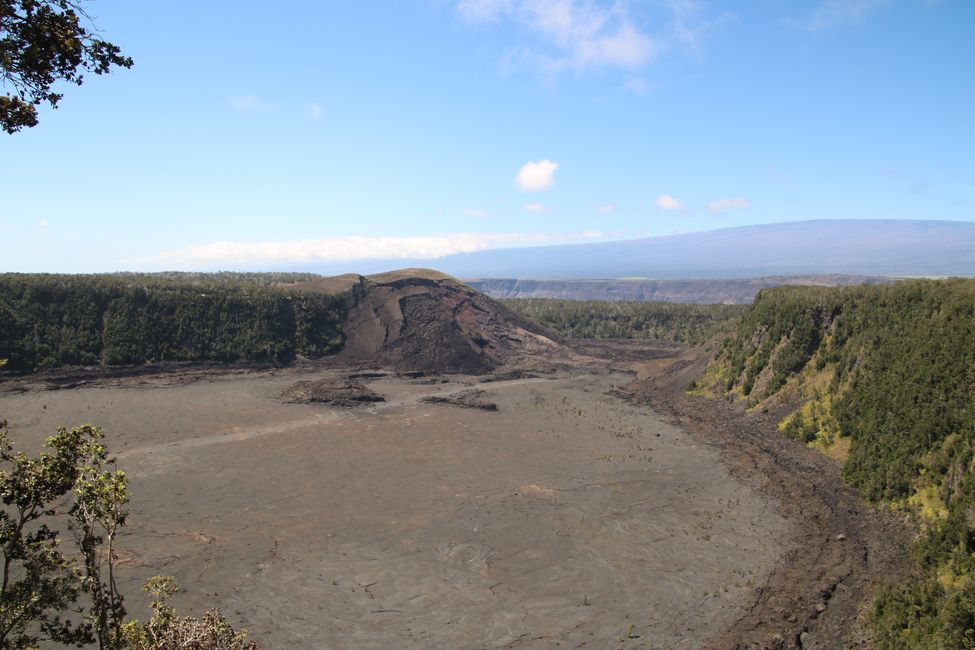
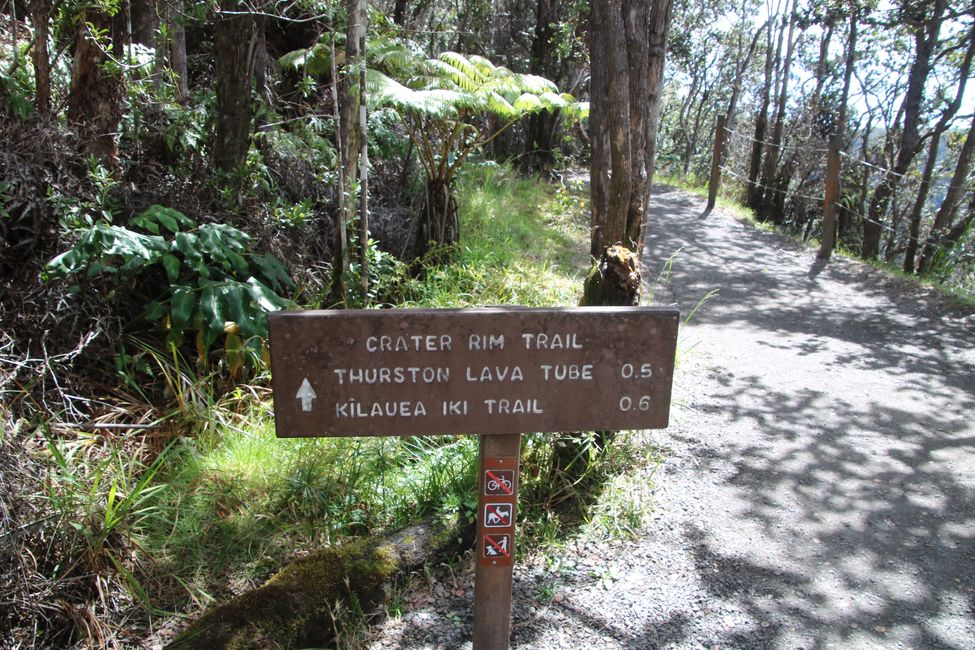
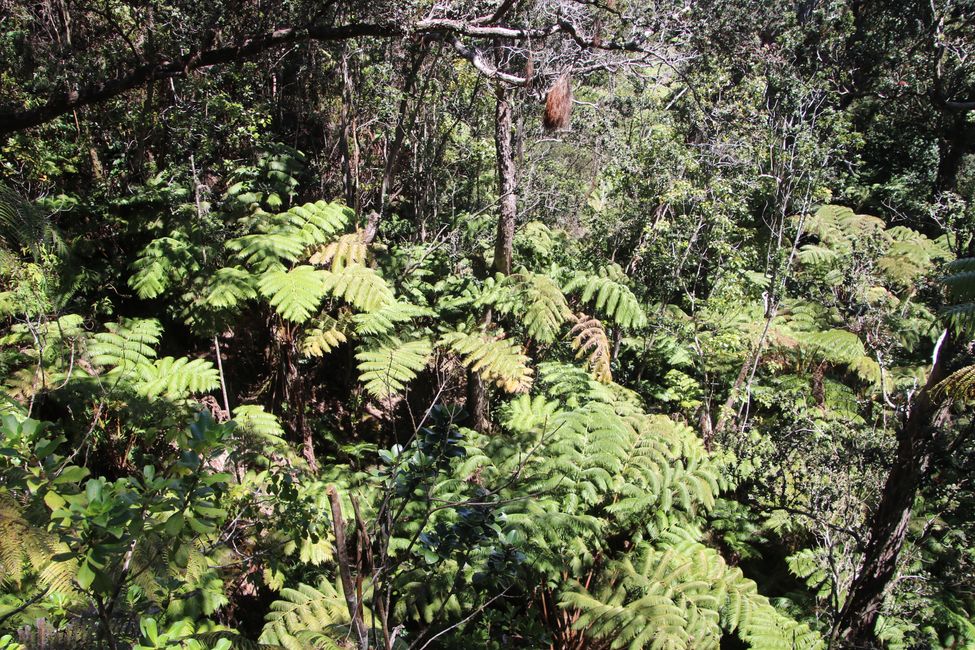
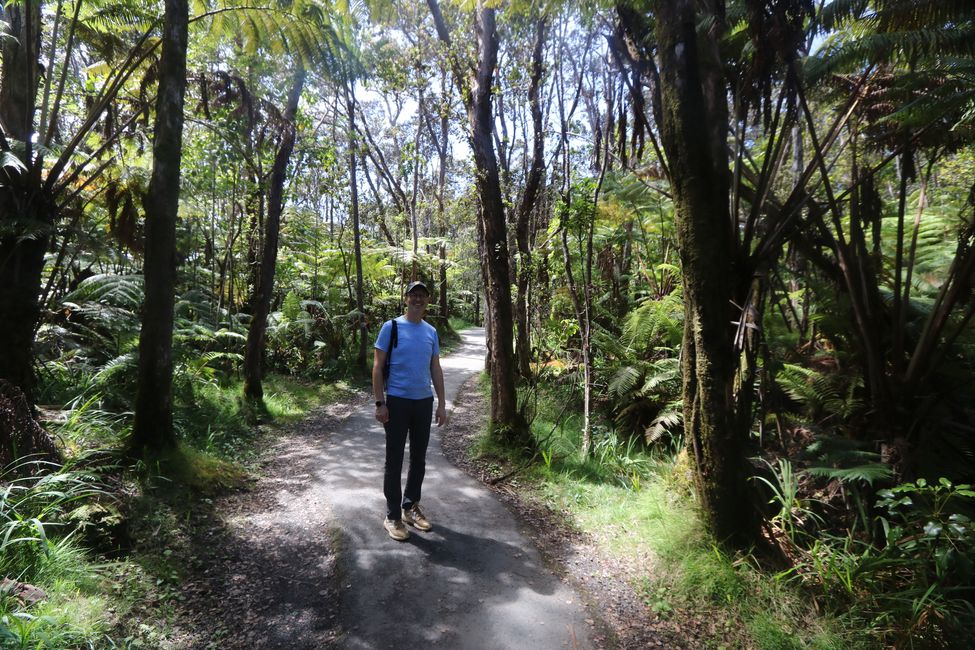
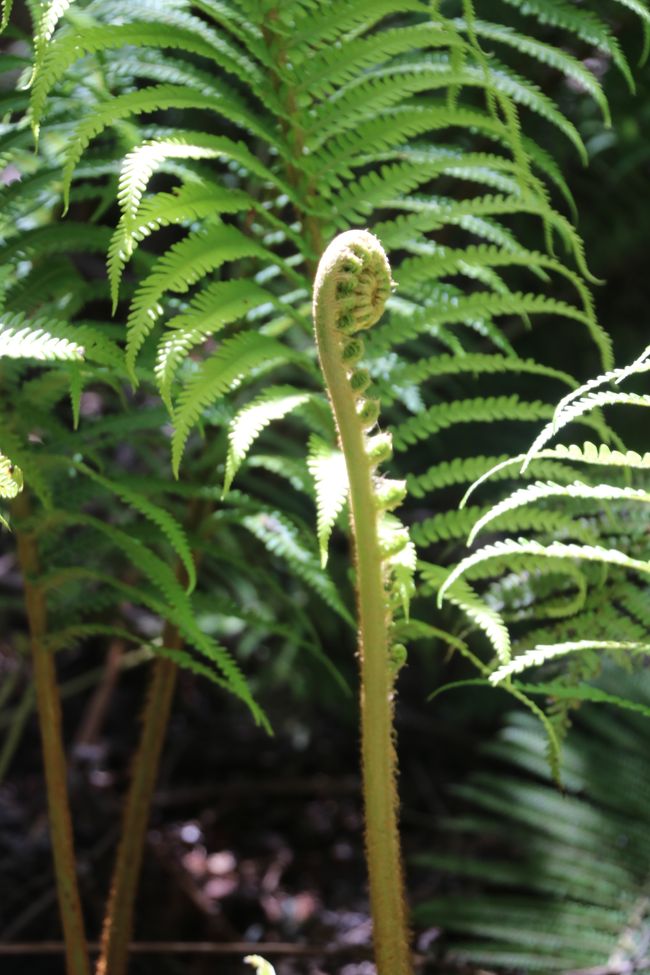
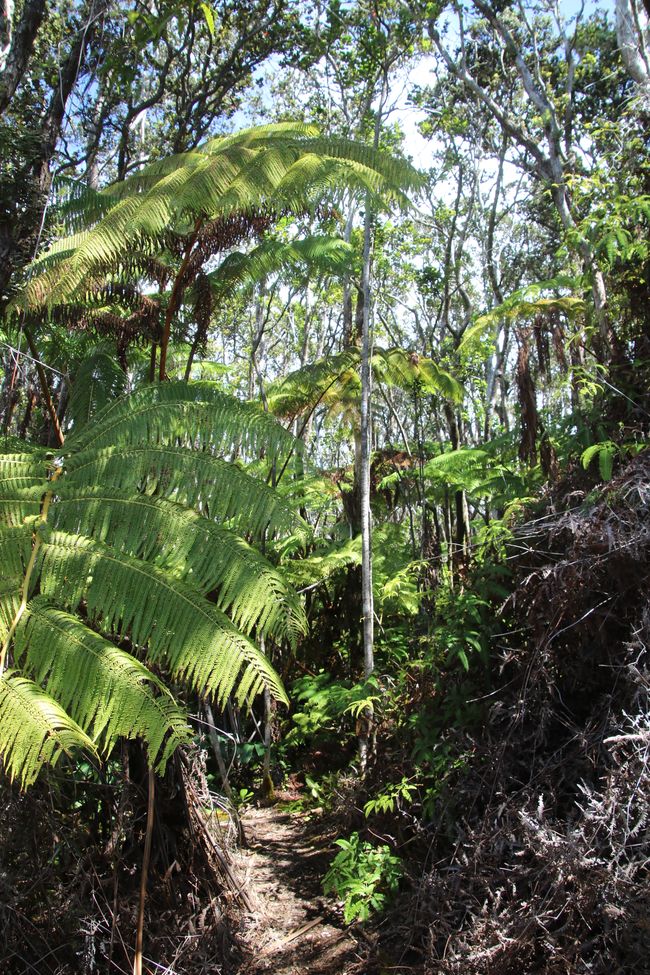
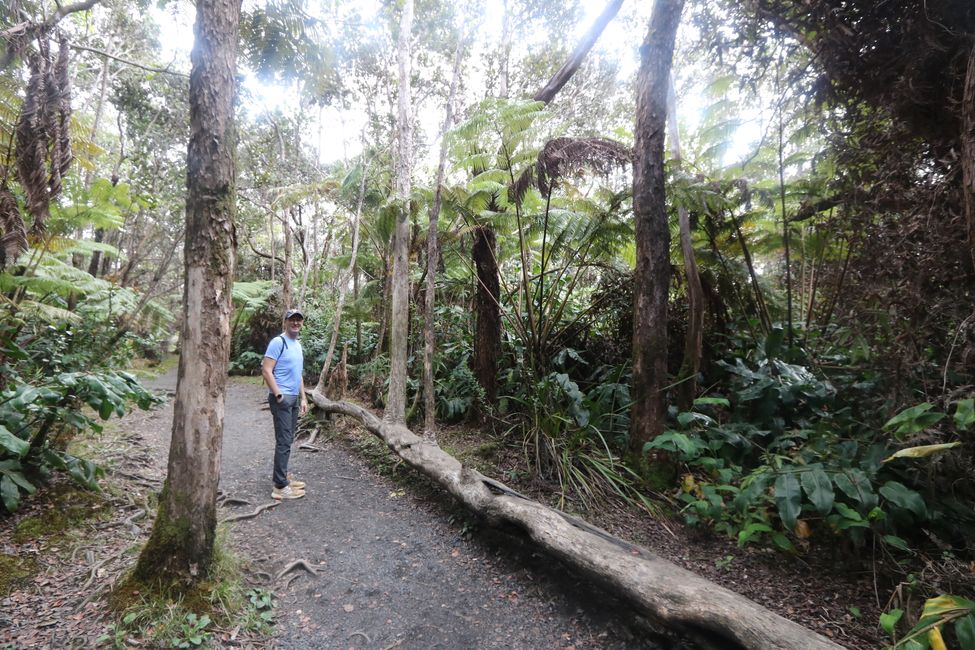
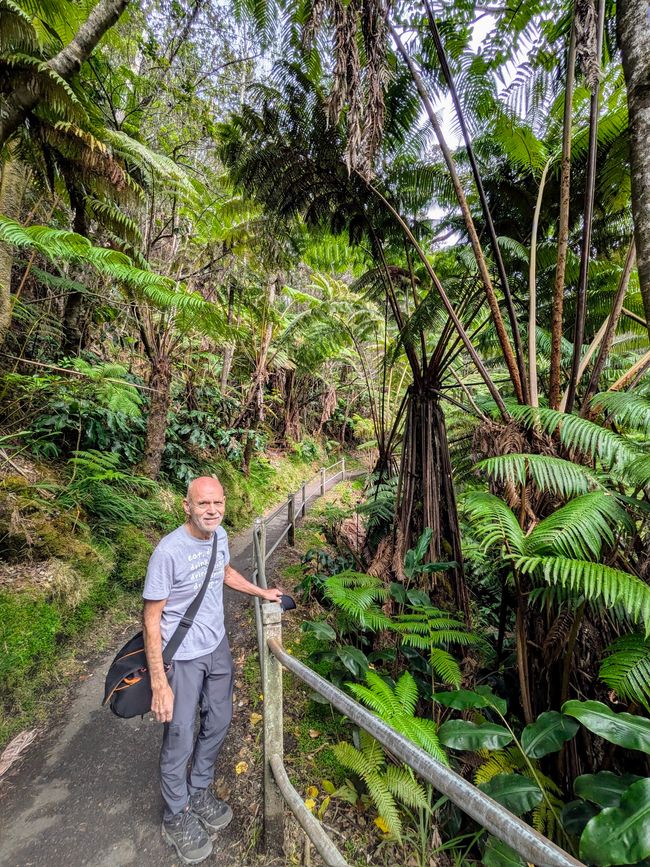
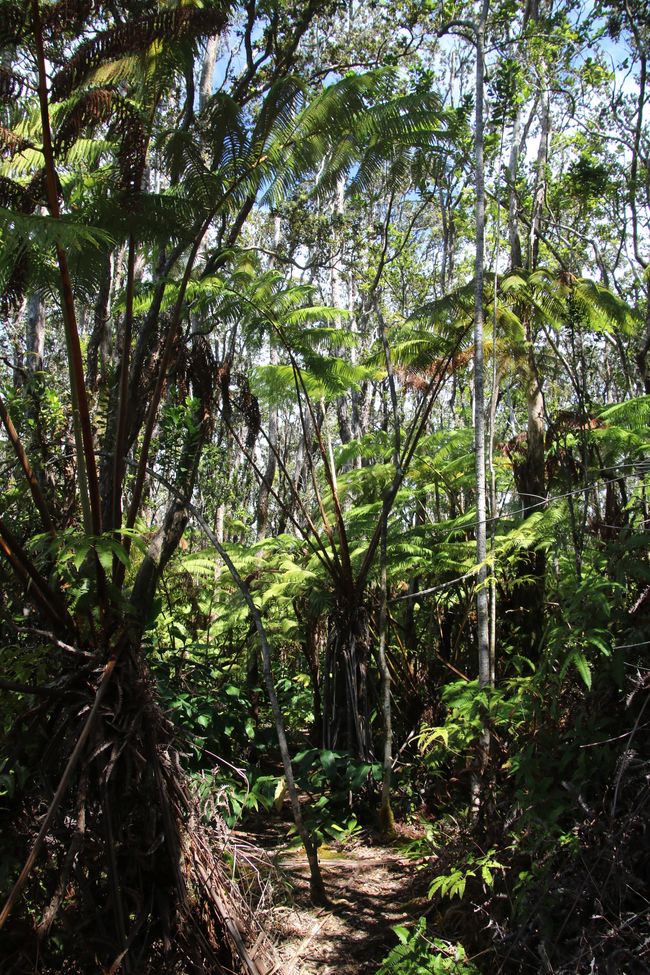
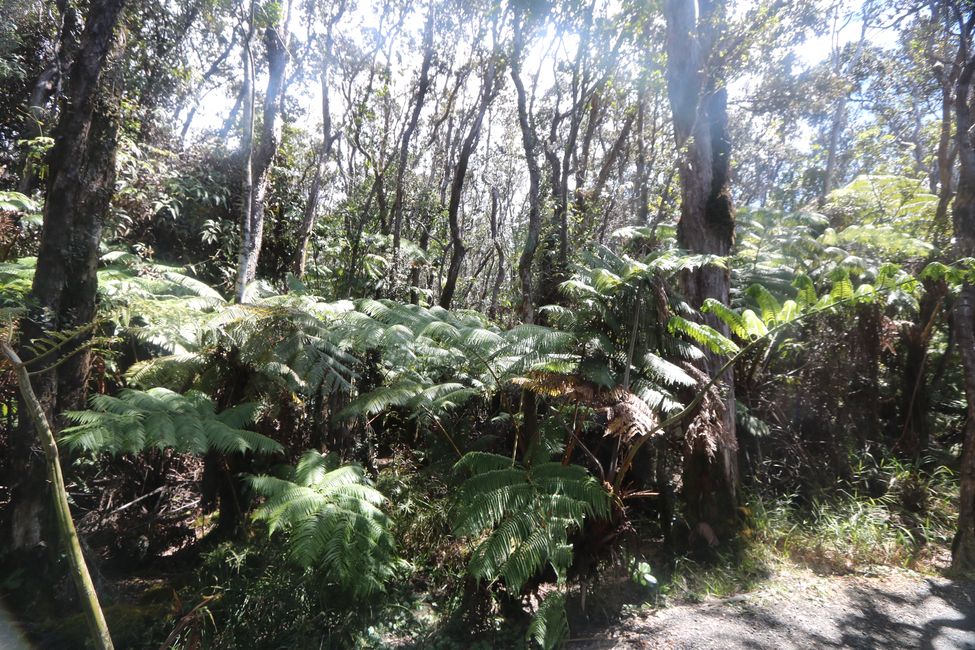
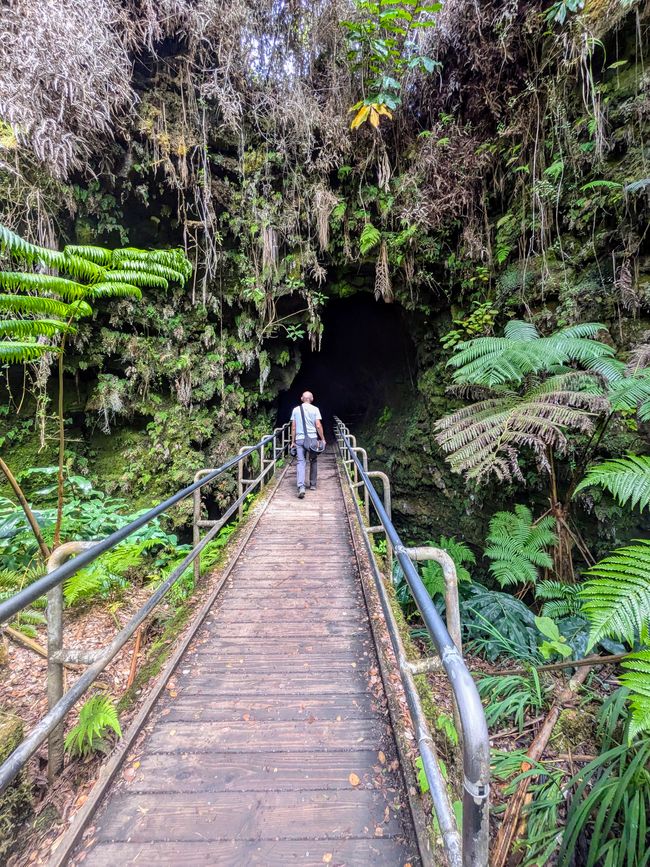
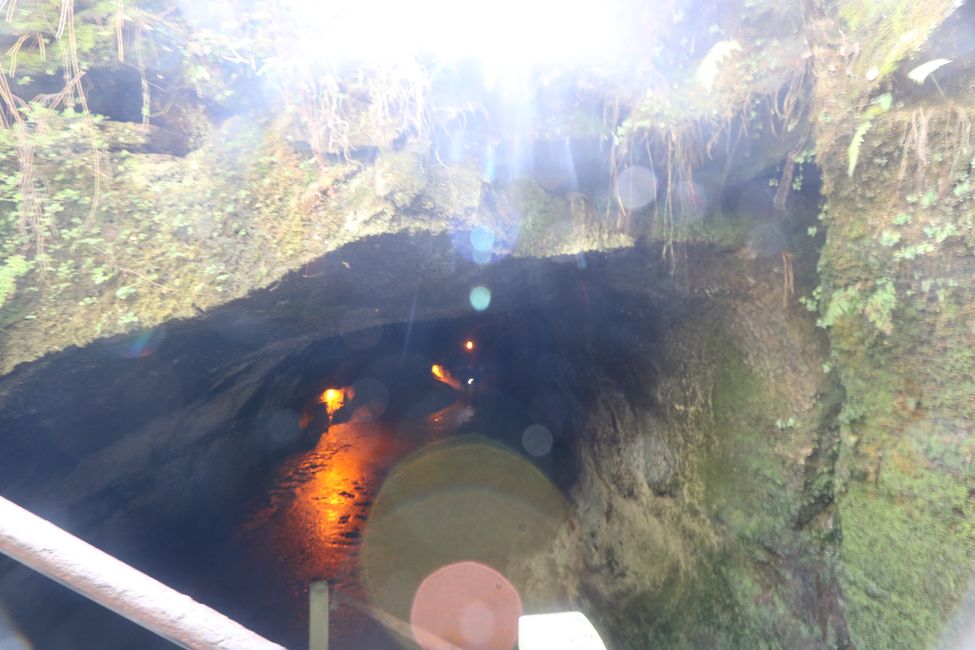
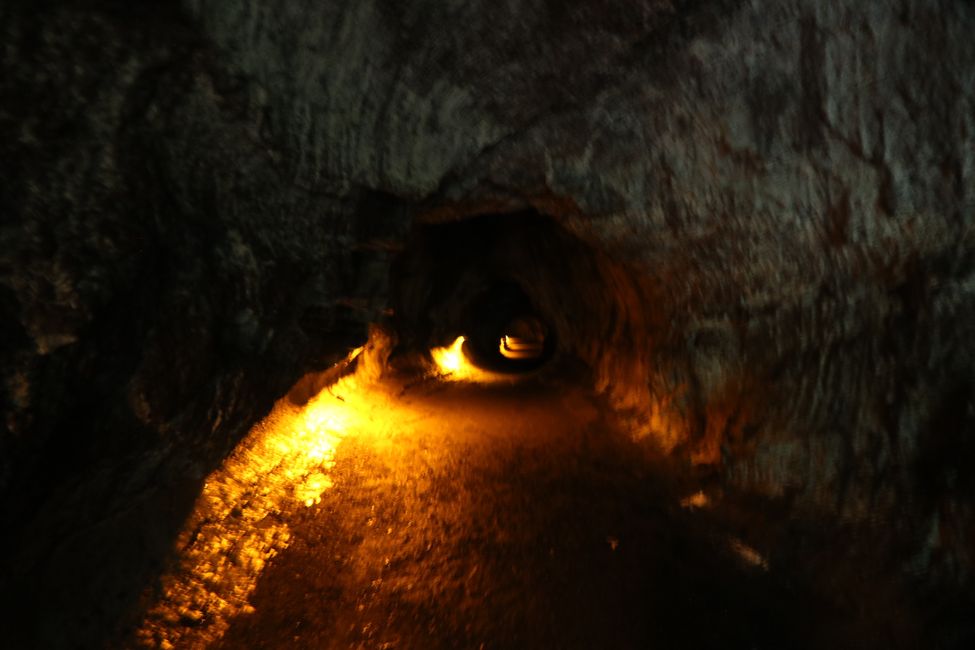
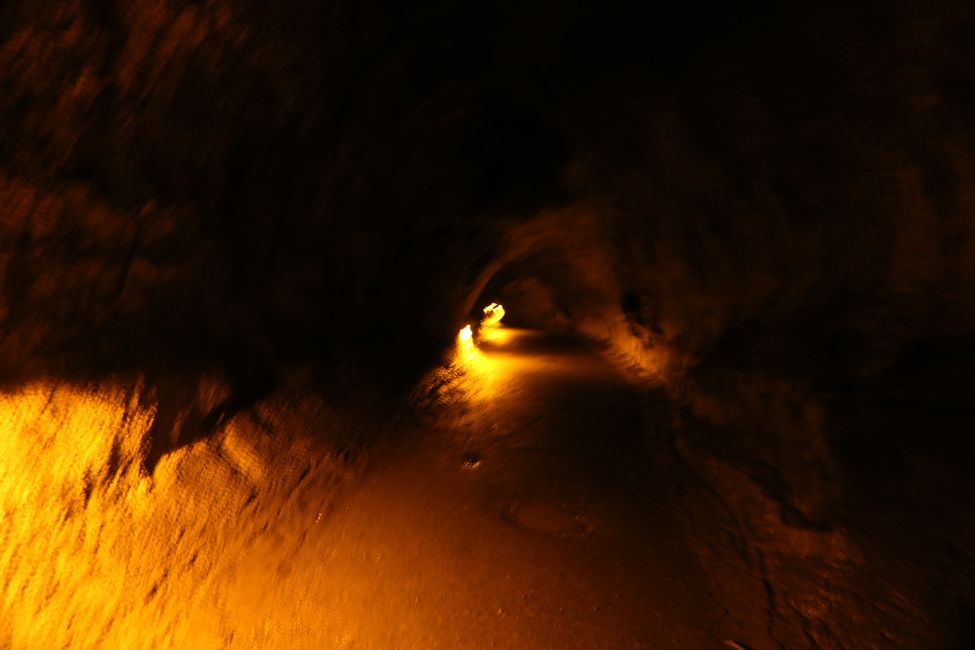
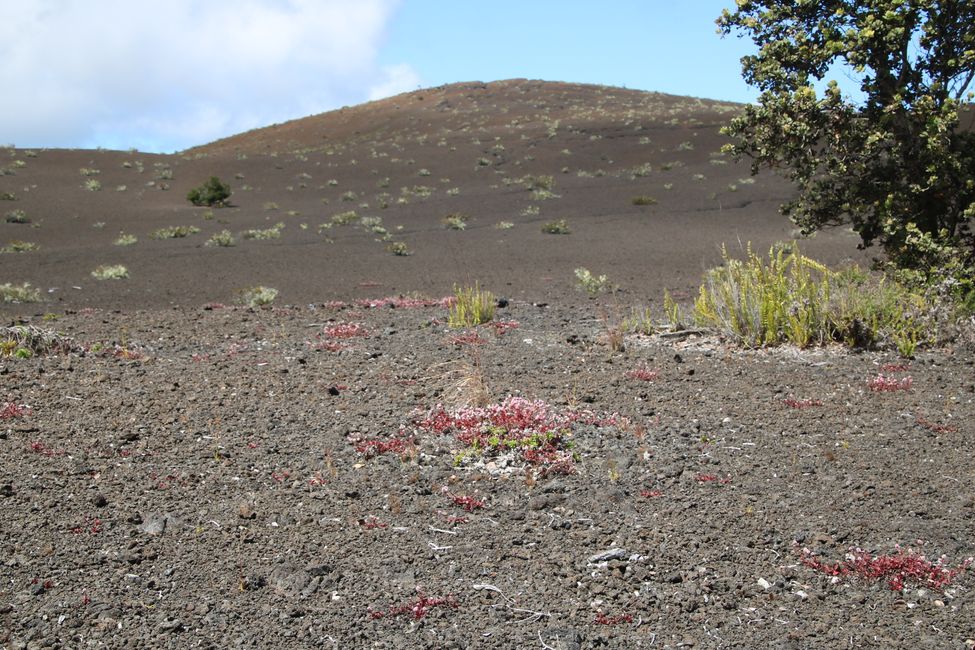
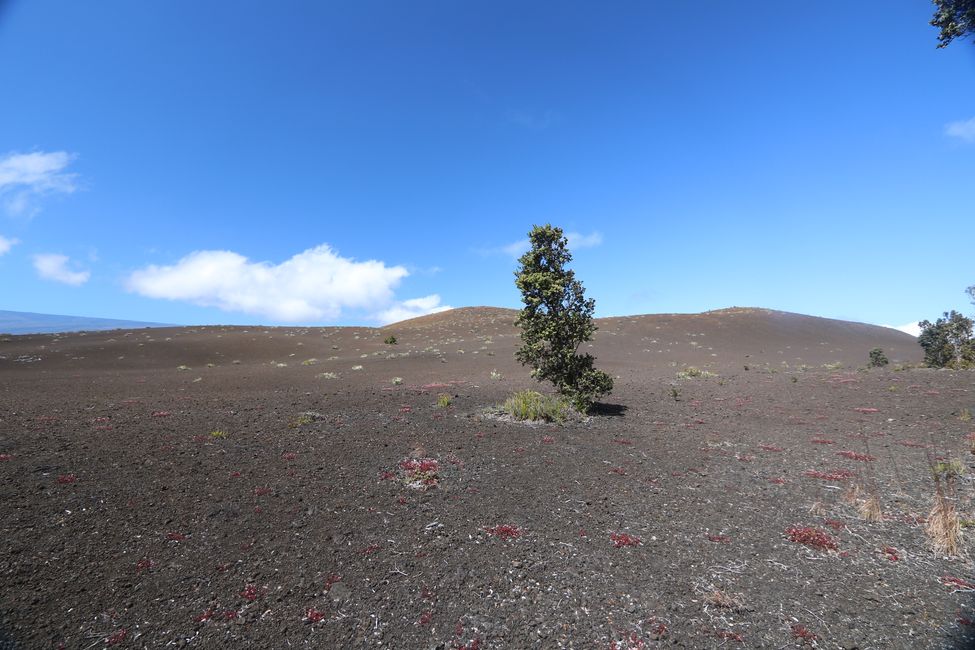
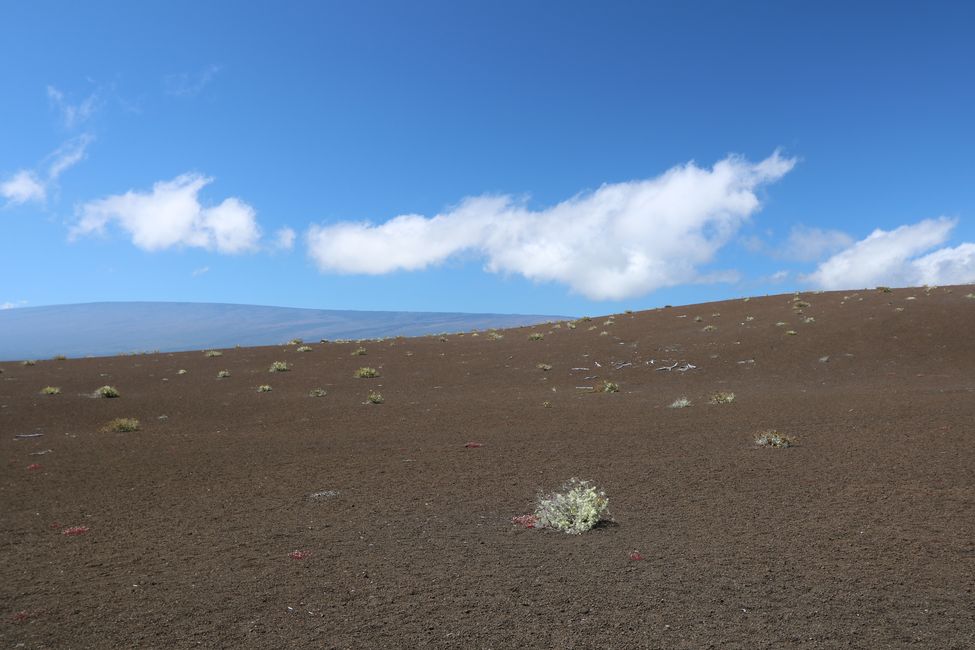
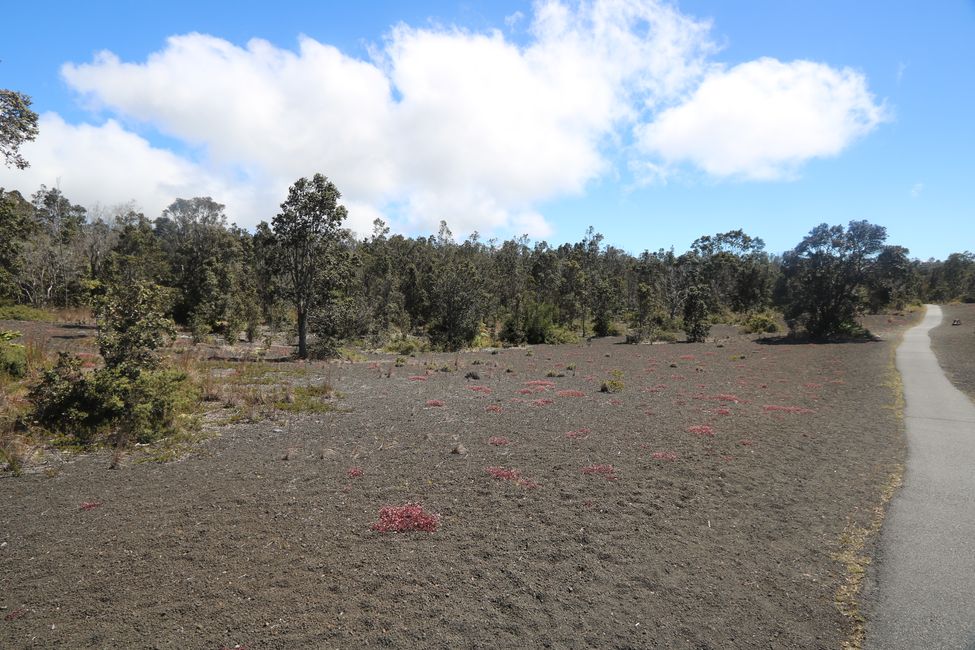
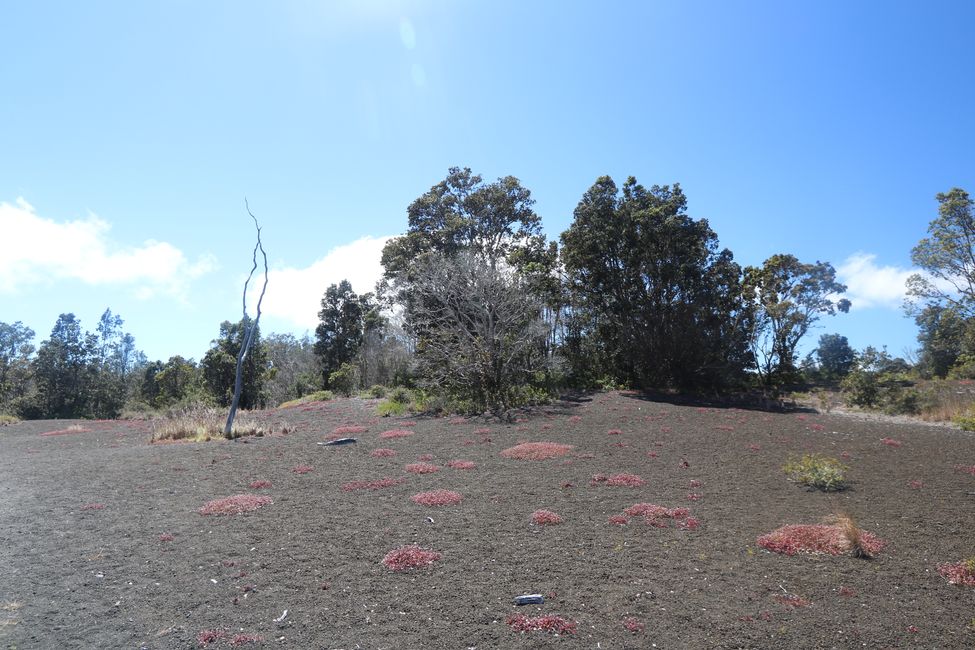
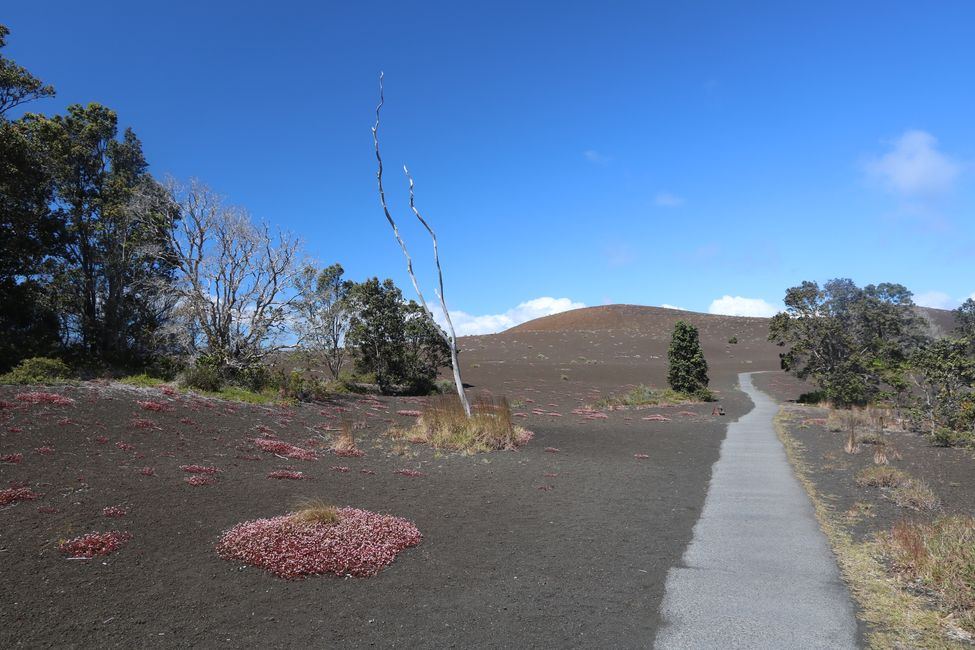
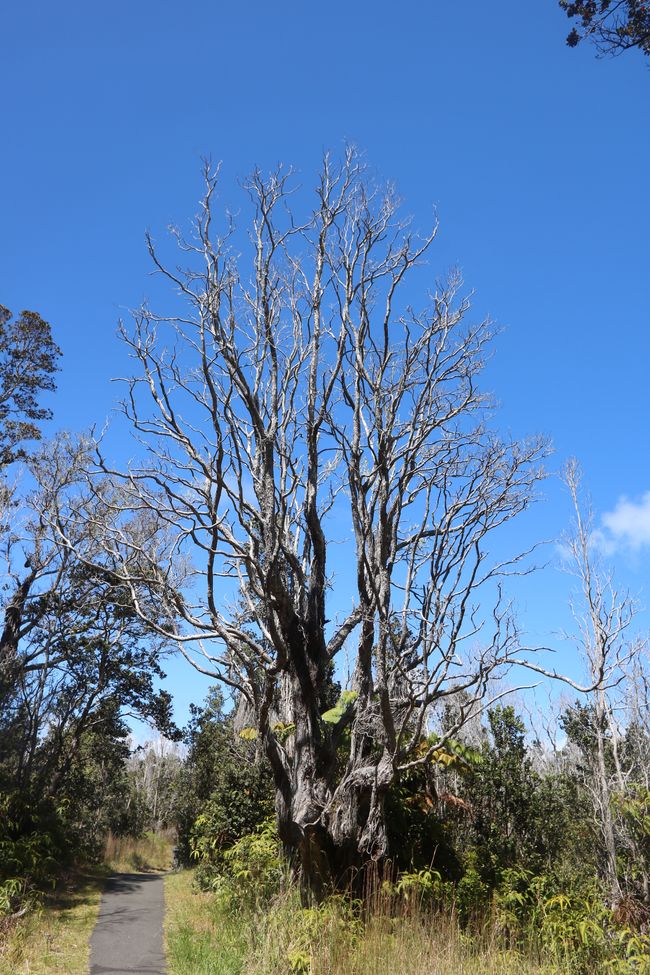
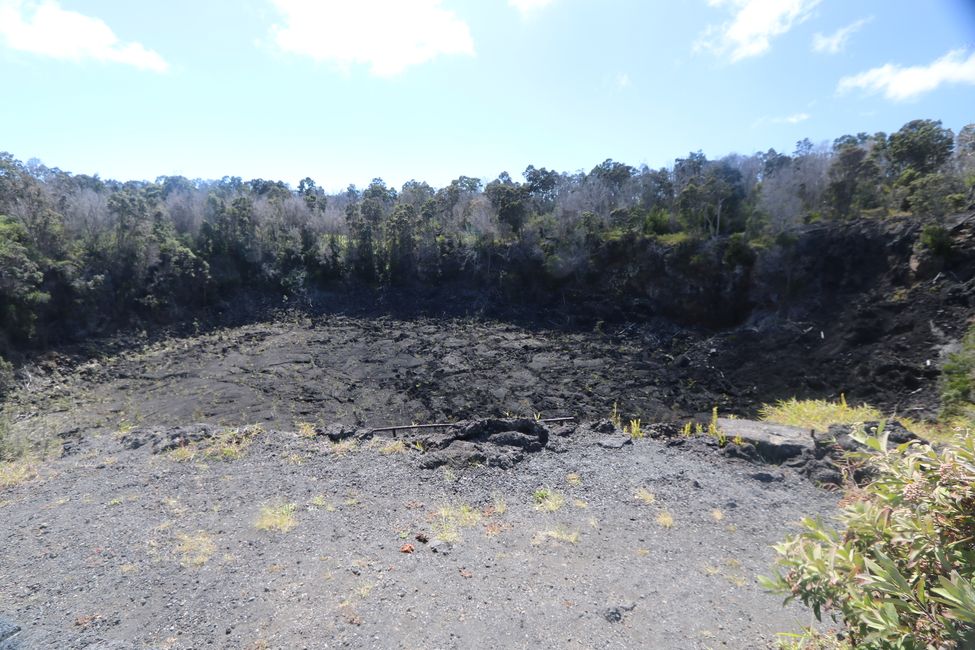
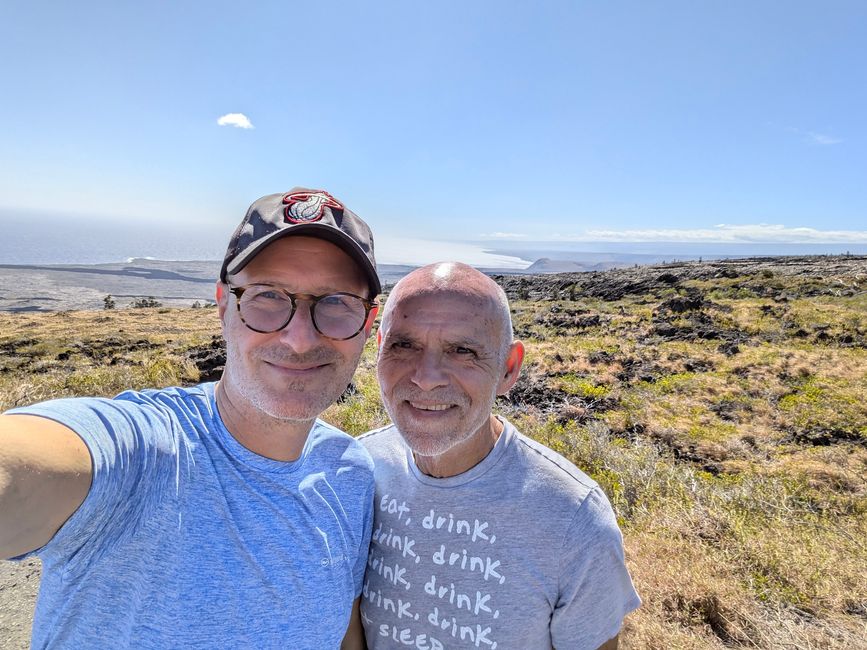
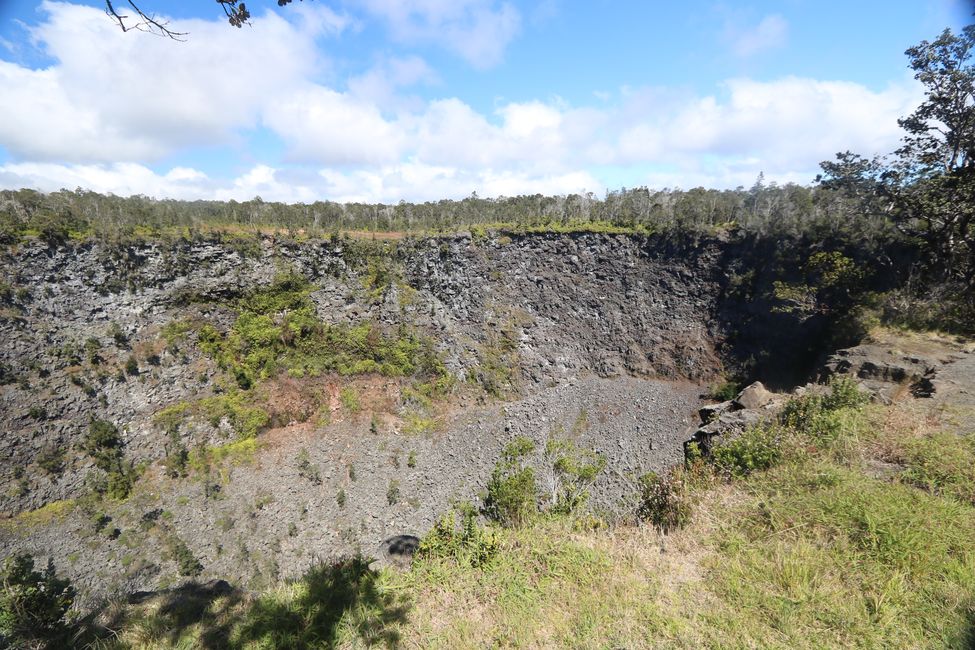
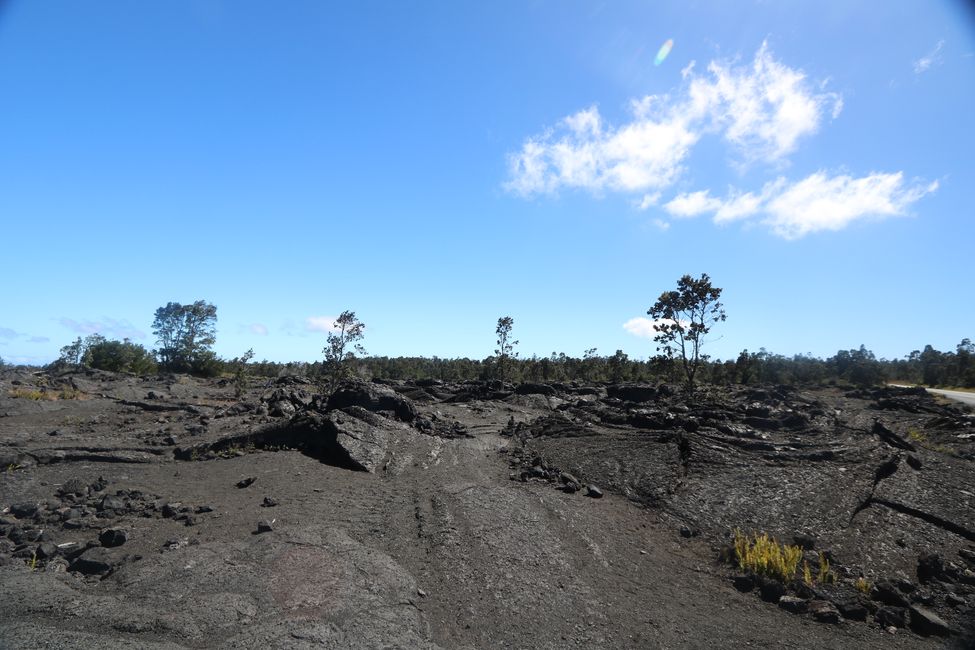
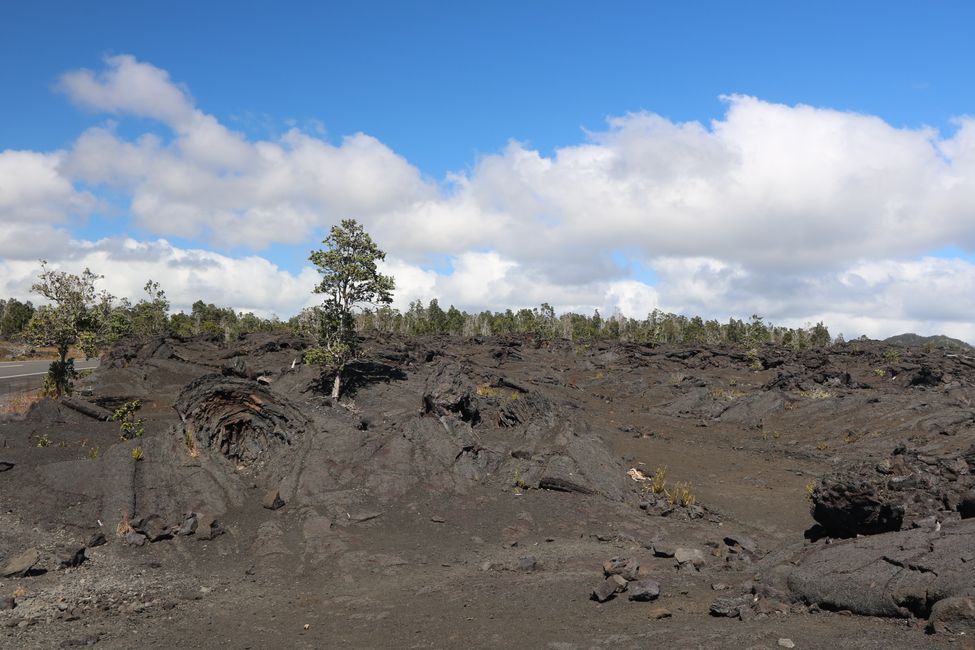
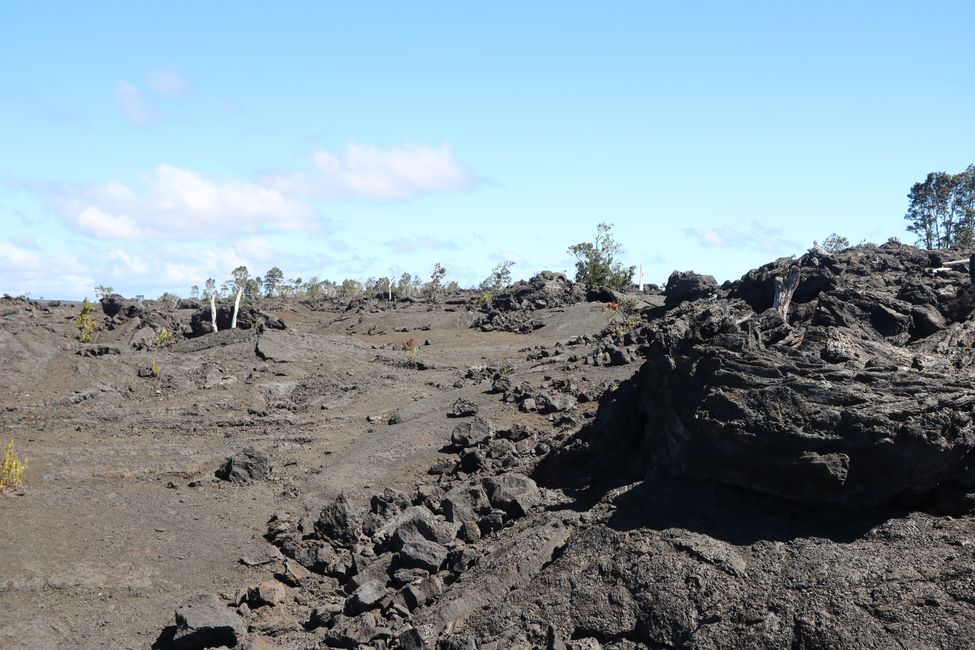
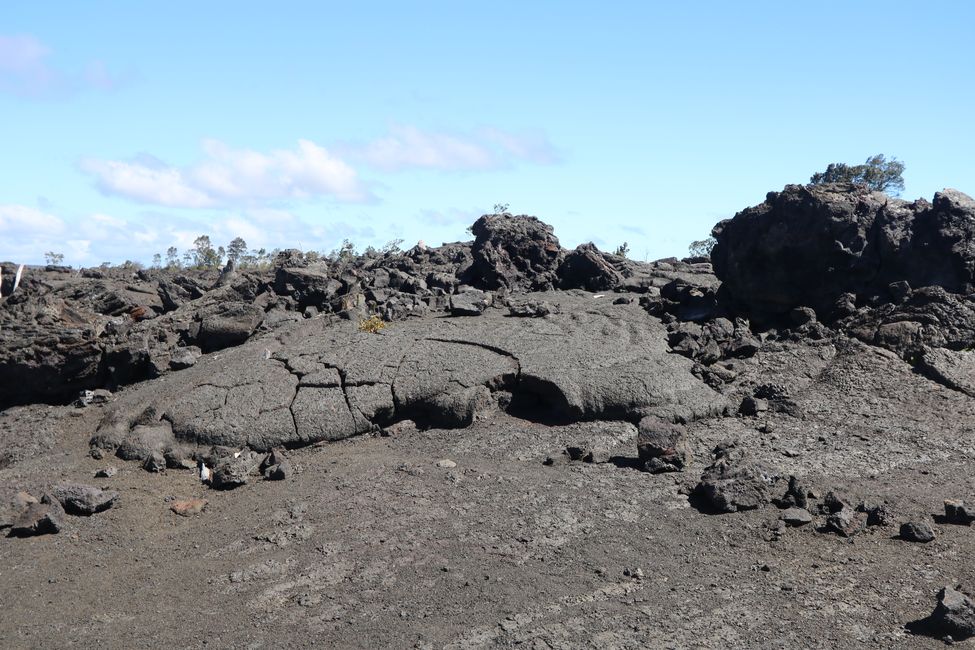
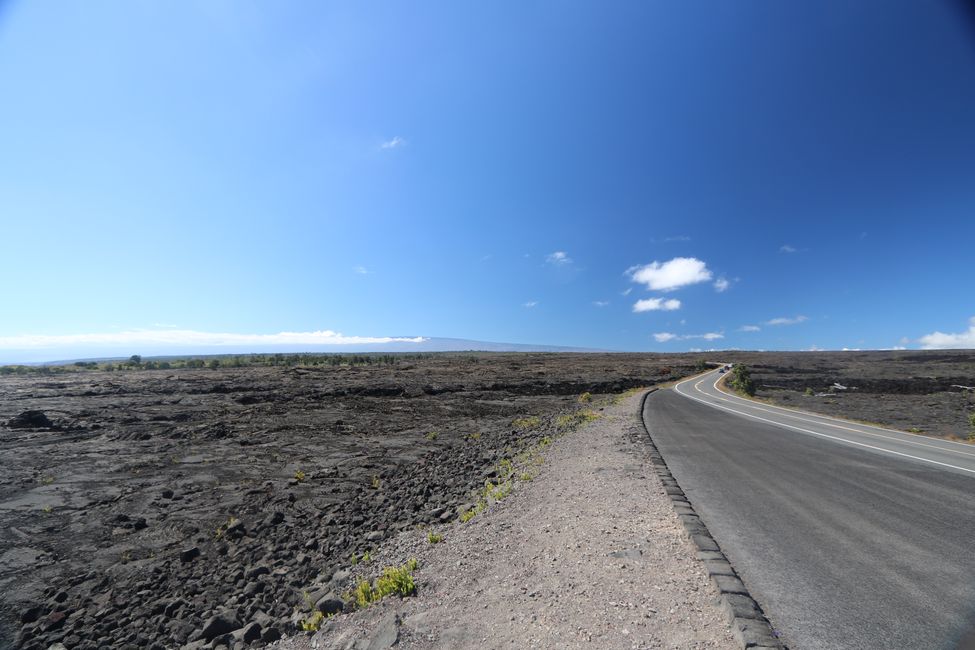
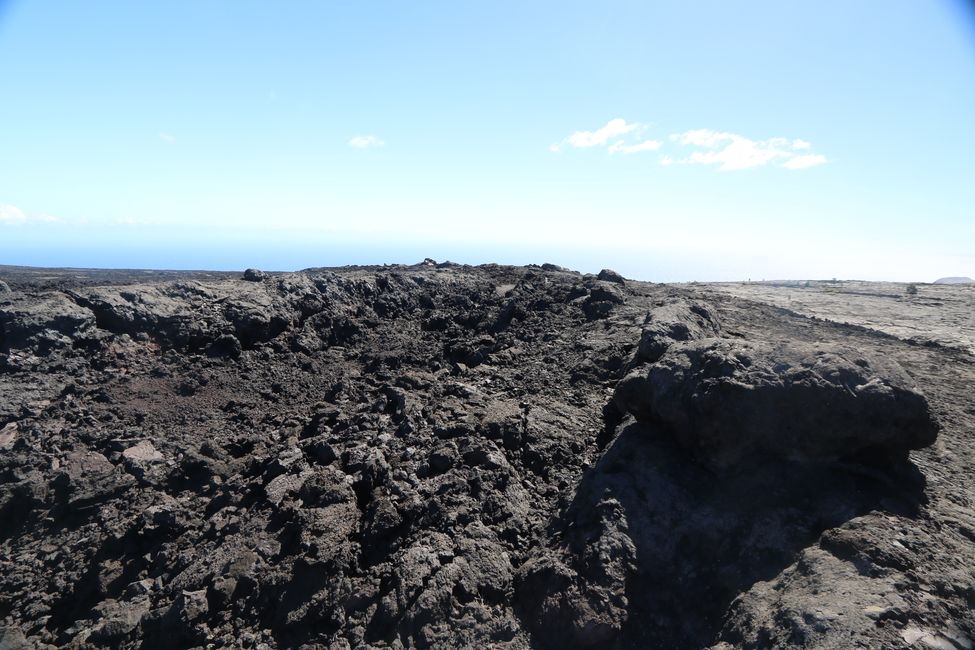
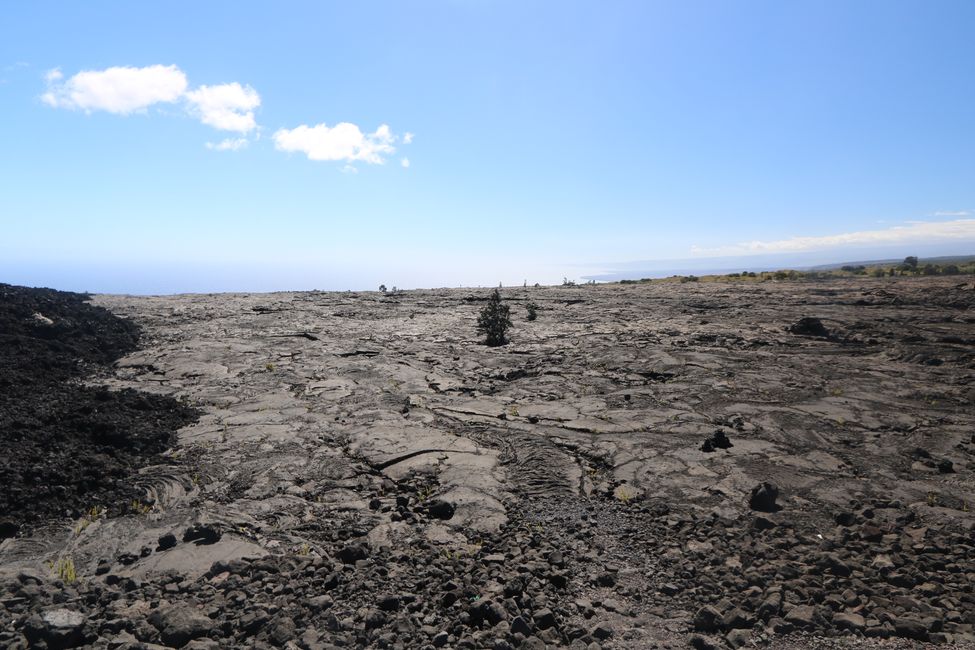
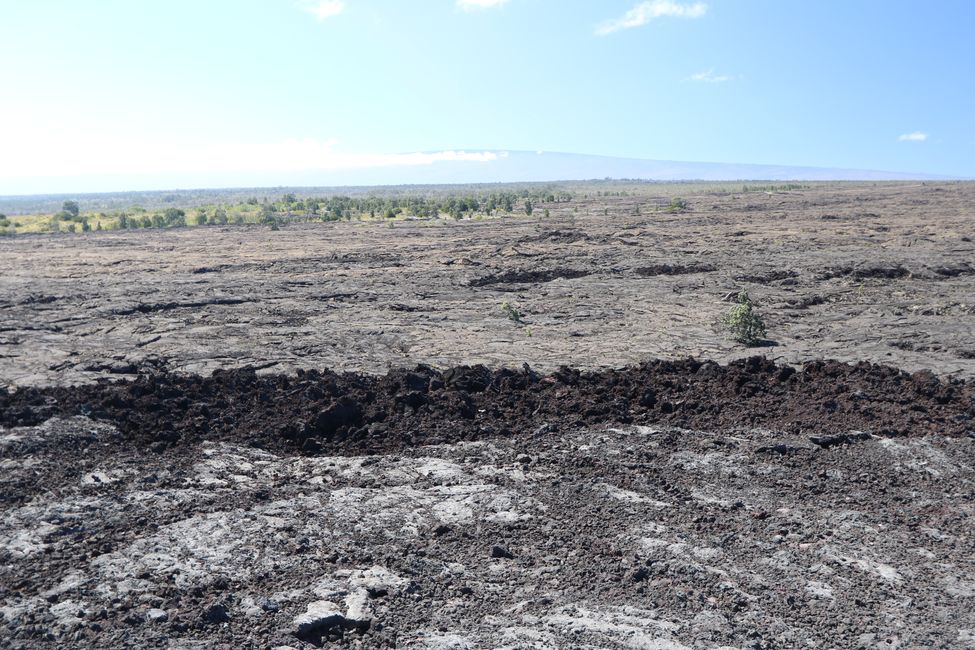
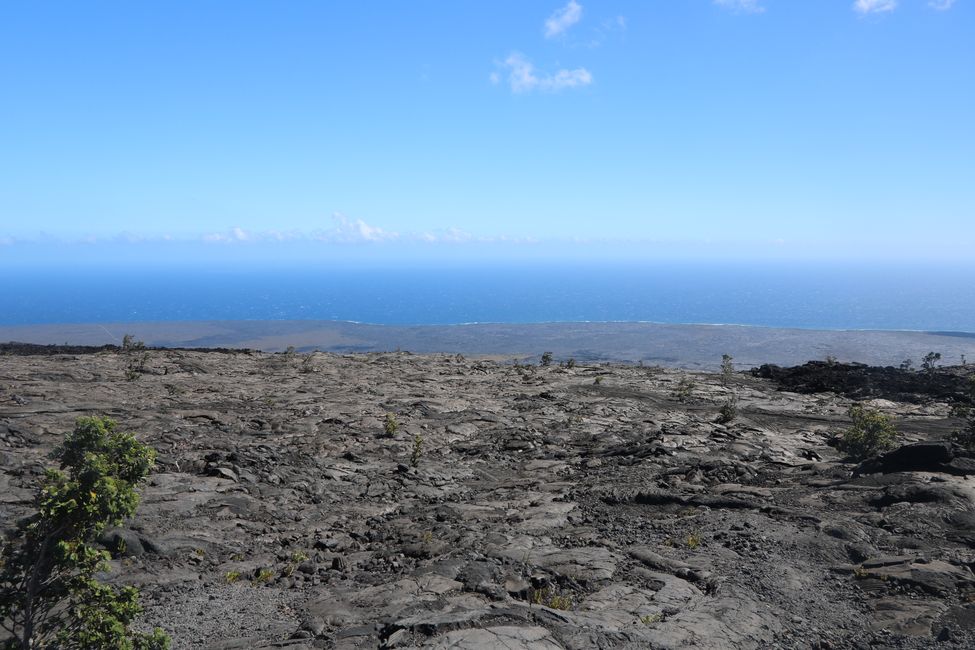
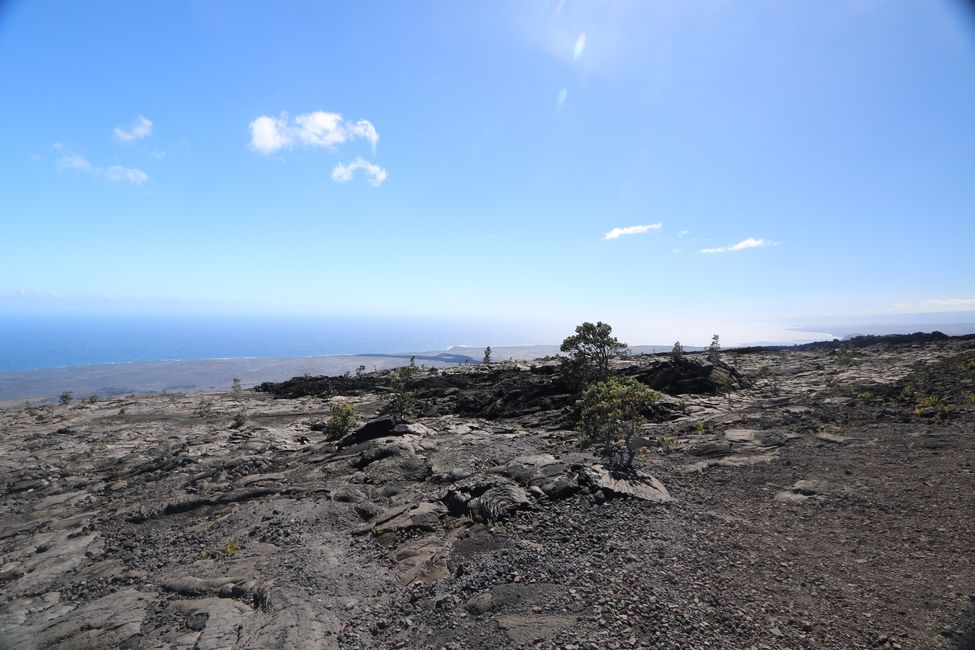
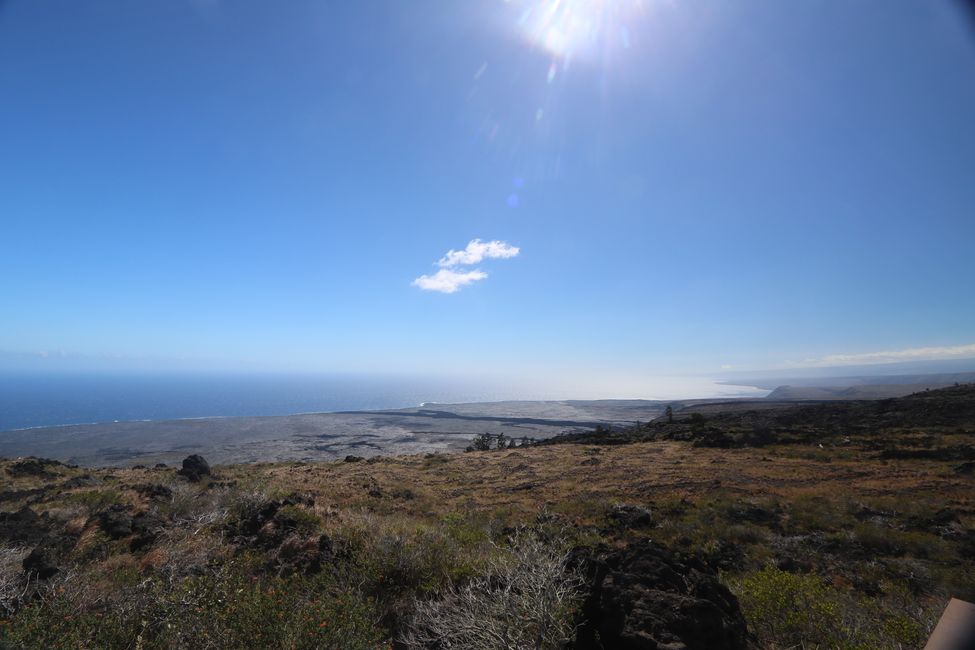
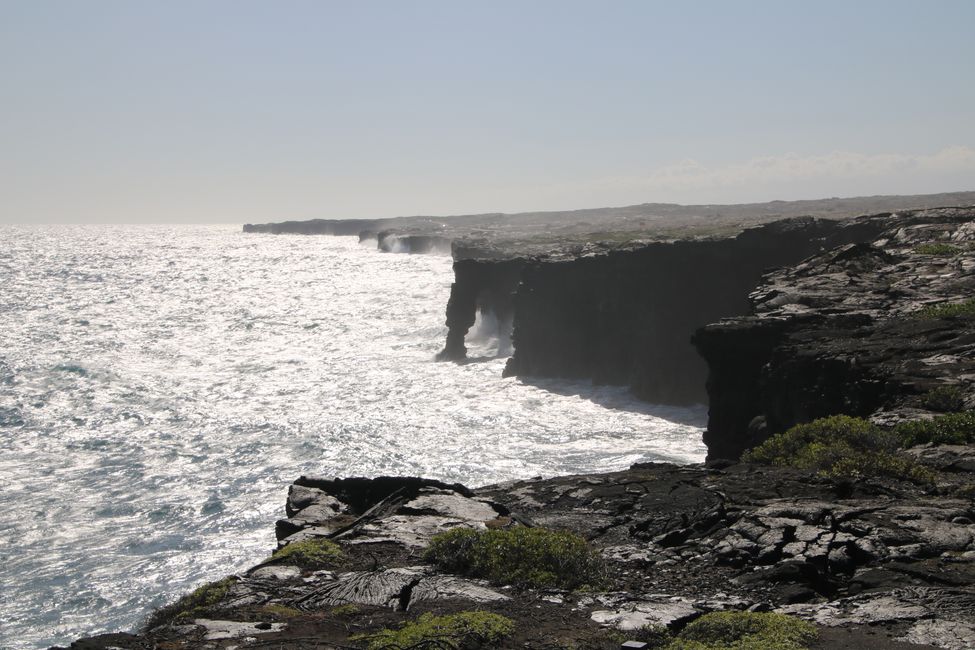
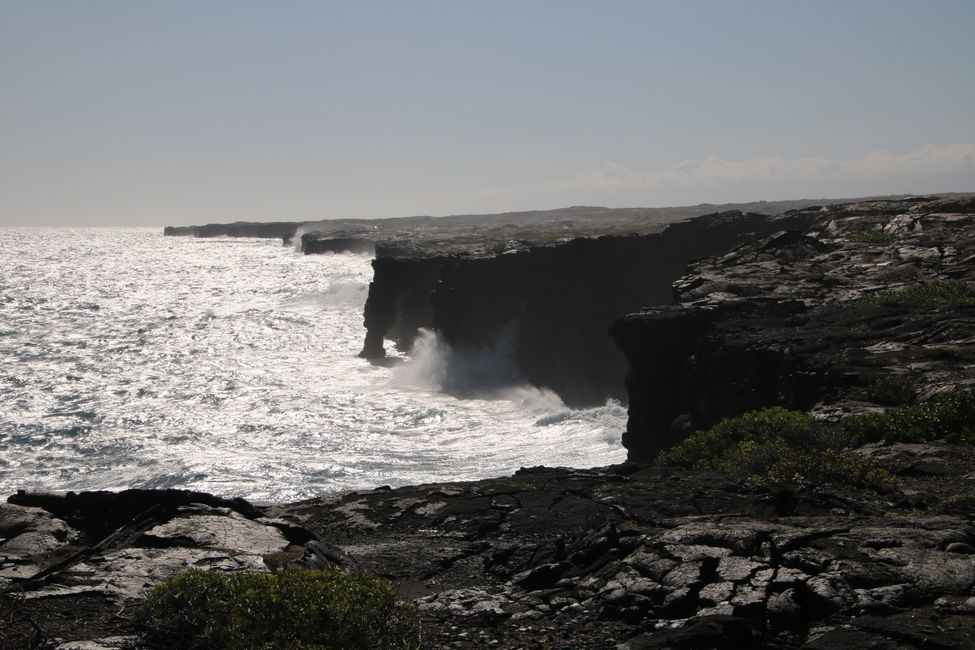
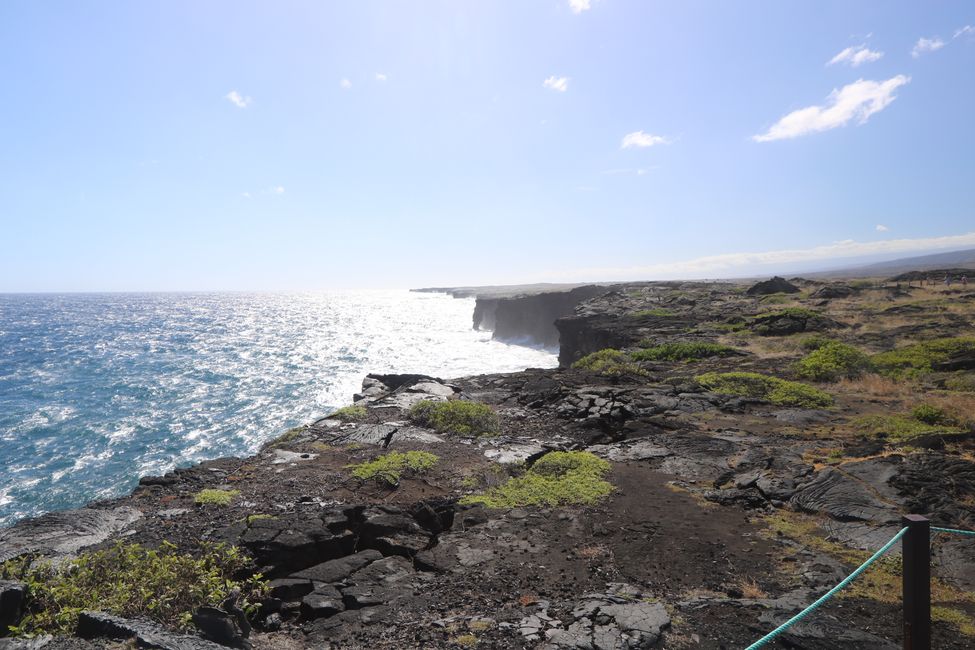
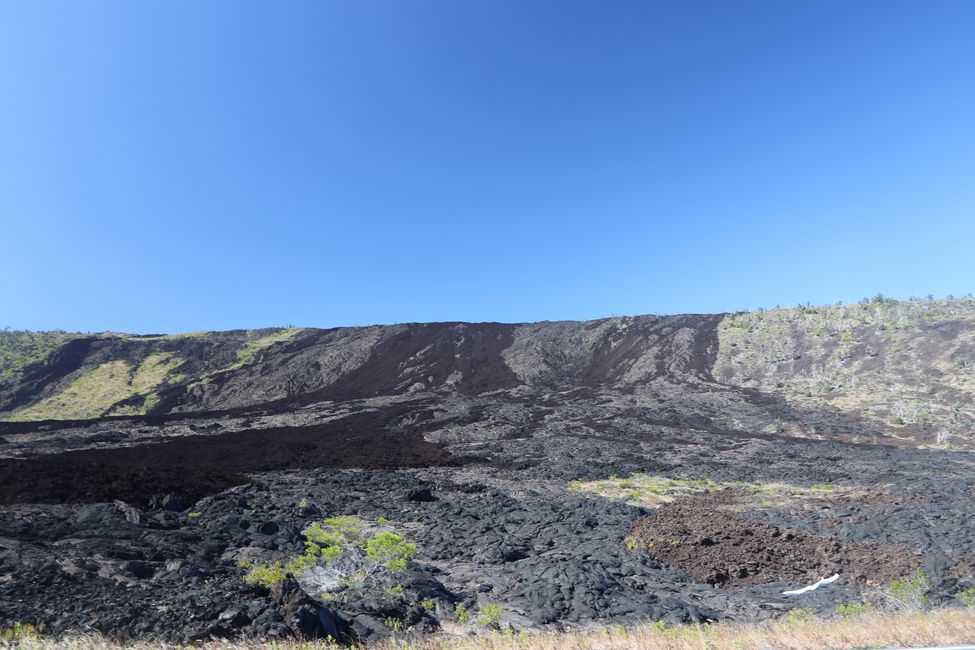
뉴스레터 구독
Our task for today was to visit the Hawai’i Volcanoes National Park in the southeastern part of Big Island in Hawai’i.
After the Mauna Kea crater evaded us yesterday due to a few silly shortcomings in our vehicle, we played it safe today and visited one or several other craters. After all, there are plenty of other craters that are not so finicky and are happy to show themselves to EVERYONE.
For a small donation, regardless of the number of engines we had, we were granted entry. Our direct route was along the crater rim heading west. From various outlooks, we had a perfect view of the now-cooled Kilauea crater, whose main activity occurred before 1924. Nonetheless, there were still some lava flows here and there, especially in the 1970s. A massive hole with steep, high cliffs. It reminded us directly of the open-pit mining in the Rhineland area, with equally large and deep dark holes...
After marveling at what was offered here, we also continued along the crater rim towards the east (the Rim Road used to be a complete circle, but seismic activities have destroyed parts of the road). From here, we could see the Kilauea Iki crater, which was formed only in the 1950s and reminds us of the City Hall in Cologne.
We walked a few smaller trails. One took us through jungle-like paths overgrown with the already known giant ferns and other plants, including various species of orchids. The Devastation Trail was very beautiful, leading through barren volcanic land, which we had all to ourselves. We were alone on the trail for a long time. Here, too, there were beautiful plants and also dead trees that created a lovely picture. Again, nature seeks and finds its way and right to exist despite all adversities.
Another highlight was the lava tunnel, which you could walk through for about 300 meters. Pitch dark, equipped only with a few weak yellow lights on the walls, you could experience lava in a different way.
At the end, we followed the Chain of Craters Road by car and saw many craters, and above all, we could see the solidified lava very well. It was easy to recognize the mush that flowed out of the volcano as lava and then cooled down. Huge fields had been inundated with lava. However, there were always plants that had punched their way through the lava mass and greened the lava field. One can only marvel at what nature can do...
The Chain of Craters Road leads directly to the sea. Along a stretch of about 36 kilometers, you pass by large lava fields. Here, you can also see signs on the lava fields indicating when the lava flowed, mostly in the 1970s. The road we drove on was built out of the lava. However, there were still restrictions just a few weeks ago due to seismic activities. We feared that the road to the sea might not be fully passable since there were cracks in the paved roads that had to be closed first. But the road workers were diligent, and we could drive on the road to the sea. At several viewpoints, you could enjoy the incredible view over the coastline, the deep blue sea, and the black, cooled lava flows.
The endpoint of the road, which also fell victim to the lava, was the Holei Sea Arch, which rises 18m directly above the cliffs. Here, a strong wind could be felt, whipping the blue sea into a frenzy, which then climbed the rocky cliffs and sprayed the spray. An absolutely wonderful experience.
That was a bit too much for us ;) – we headed home.
It’s worth noting that the weather was much better than predicted. Sunshine and blue skies – perfect. However, the weather on the east side of the island is generally very unpredictable and constantly alternates between clouds and sunshine. The weather by the sea was perfect, but a few kilometers inland, it was rather mixed.
뉴스레터 구독
답변
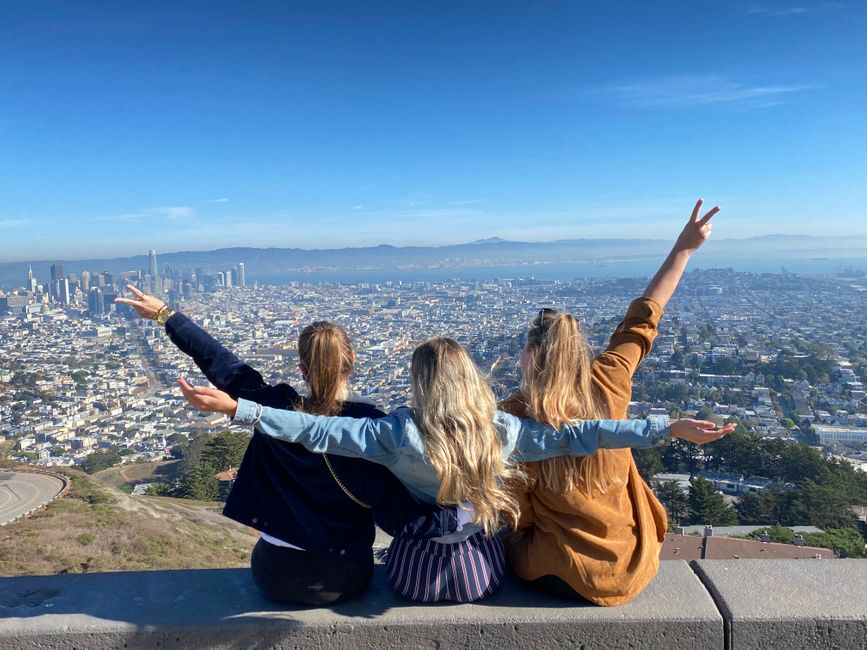
미국 여행 보고서
